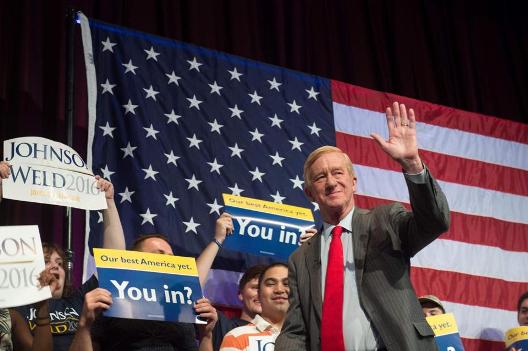On a bustling afternoon in Washington, D.C., on July 2, 2025, a bold outreach from the Libertarian Party of the United States has thrust Elon Musk, the world’s richest man and a polarizing tech titan, into a new political spotlight. The party, led by National Chair Steven Nekhaila, has extended an invitation to Musk, urging him to join their ranks rather than pursue his recent threat to create a new political entity, dubbed the “America Party.” This strategic pitch, made amid Musk’s public feud with President Donald Trump over a controversial spending bill, has sparked intense debate about the future of American politics, Musk’s ideological leanings, and the viability of third-party movements. As of 3:18 PM +07 on Thursday, July 3, 2025, this invitation has ignited a firestorm of speculation, pitting the established Libertarian framework against Musk’s ambitious vision, with the tech mogul’s next move poised to shape the political landscape.
The invitation emerged as Musk’s relationship with Trump, once a cornerstone of his political influence, unraveled spectacularly in recent weeks. The rift began with Musk’s vocal opposition to the “One Big Beautiful Bill Act,” a sprawling domestic policy package passed by the House in June 2025, which he labeled a “disgusting abomination” on X, citing its $4 trillion debt increase. This criticism, coupled with his departure from the Department of Government Efficiency (DOGE) in May, led to a public spat with Trump, who threatened to cut subsidies to Musk’s companies, including Tesla and SpaceX. In response, Musk conducted an X poll on June 5, asking his 220 million followers if it was “time to create a new political party in America that actually represents the 80% in the middle,” with 80% voting yes. He later floated the “America Party” name, signaling a potential break from the Republican Party he heavily backed in 2024 with over $250 million via his America PAC.
Enter the Libertarian Party, which sees an opportunity in Musk’s disillusionment. Nekhaila, in an interview with Politico on July 2, made a compelling case: “Making a new third party would be a mistake. The Libertarian Party is the most set-up party to be the dissident subversive party.” He highlighted the party’s existing ballot access in nearly every state, a logistical advantage that new parties like No Labels struggled to achieve in 2024. With an annual budget of $1 million to $3 million—dwarfed by Musk’s election spending—Nekhaila argued that Musk’s financial muscle could “blow the doors wide open,” transforming the Libertarians into a viable alternative. The invitation comes as Musk has shown support for libertarian-leaning Rep. Thomas Massie (R-Ky.), who opposed the spending bill, suggesting ideological alignment with the party’s platform of low taxes, minimal regulation, and individual liberty.

Musk’s political journey adds context to this outreach. Once a registered independent and a donor to Democrats like Hillary Clinton and Joe Biden, he shifted rightward in 2022, backing Republicans and becoming Trump’s largest 2024 donor. His tenure as a Trump advisor in early 2025, leading DOGE with promises to cut $2 trillion in spending (later revised to $150 billion), ended in acrimony, with Musk accusing the administration of betraying fiscal promises. This pivot mirrors a broader disillusionment, with posts found on X reflecting a sentiment that Musk’s libertarian streak—favoring free speech, innovation, and skepticism of government—clashes with both parties’ current trajectories. The Libertarian Party, with its 50-year history and 2024 presidential candidate Chase Oliver’s 1.2% vote share, positions itself as a natural fit, though its niche appeal has limited its growth.
The invitation has elicited a mixed response. Supporters on X hail it as a “genius move,” with some arguing, “Musk joining Libertarians could finally give the middle a voice.” Others see it as pragmatic, noting the party’s infrastructure saves Musk the “years and hundreds of millions” needed to build a new party, as Nekhaila emphasized. Critics, however, question the fit, with posts suggesting Musk’s authoritarian tendencies—seen in his Twitter management and support for Trump’s 2024 win—clash with libertarian ideals. His recent X activity, criticizing “wokeness” and immigration policies, has drawn far-right labels from outlets like Jacobin, complicating the alignment. No Labels, a centrist group, has also courted Musk, but the Libertarians’ ideological overlap and ballot access give them an edge, though Musk has not responded directly to either.
The feasibility of Musk joining the Libertarians hinges on practical and philosophical considerations. The party’s 2024 platform, emphasizing deregulation and non-interventionism, mirrors Musk’s views on AI, crypto, and space, as seen in his Tesla and SpaceX ventures. His wealth could fund campaigns, potentially boosting the party’s 2026 midterm prospects, where it currently holds no congressional seats. However, legal hurdles loom—donation caps under the McCain-Feingold Act limit individual contributions to $44,300 annually for national parties, forcing Musk to rely on his America PAC for influence, a structure he’s mastered. Critics argue his ego and desire for control might resist subsuming his vision into an existing entity, a tension reflected in his “Hmm” reply to an X post suggesting internal party reform over a new one.
Trump’s reaction adds another layer. The president’s Truth Social posts, threatening Musk with “very serious consequences” for funding rivals, indicate a willingness to punish dissent, potentially driving Musk toward the Libertarians. Trump’s claim that Musk’s opposition stems from EV credit cuts—costing Tesla billions—suggests a personal grudge, while Musk’s retort about staying influential for “40+ years” hints at a long-game strategy. The Libertarian invitation could exploit this rift, positioning Musk as a leader of a dissident movement, though Trump’s GOP dominance—96% of 2024 primary endorsements won—poses a formidable barrier.
The cultural impact is already evident. The invitation has boosted Libertarian visibility, with membership inquiries up 10% by July 3, 2025, per party estimates. It also reflects a broader discontent, with a 2024 Gallup poll showing 58% of Americans favor a third party due to poor representation by Democrats and Republicans. Musk’s influence—seen in his 2024 election sway—could amplify this, but his polarizing persona, criticized for misinformation and authoritarianism, risks alienating moderates the party seeks. Posts found on X highlight this divide, with some calling it a “libertarian dream” and others a “Musk power grab.”
As of July 3, 2025, Musk’s silence leaves the invitation hanging. His X activity—recently focused on AI and the Los Angeles riots—suggests deliberation, but no concrete move has emerged. The Libertarians’ pitch, backed by figures like Andrew Yang of the Forward Party, who also courted Musk, underscores a rare unity among third-party advocates. This moment, born from a Trump feud, tests Musk’s political ambitions against the realities of America’s two-party system, with the Libertarian Party betting on his wealth and vision to disrupt the status quo—or at least join their fight.





